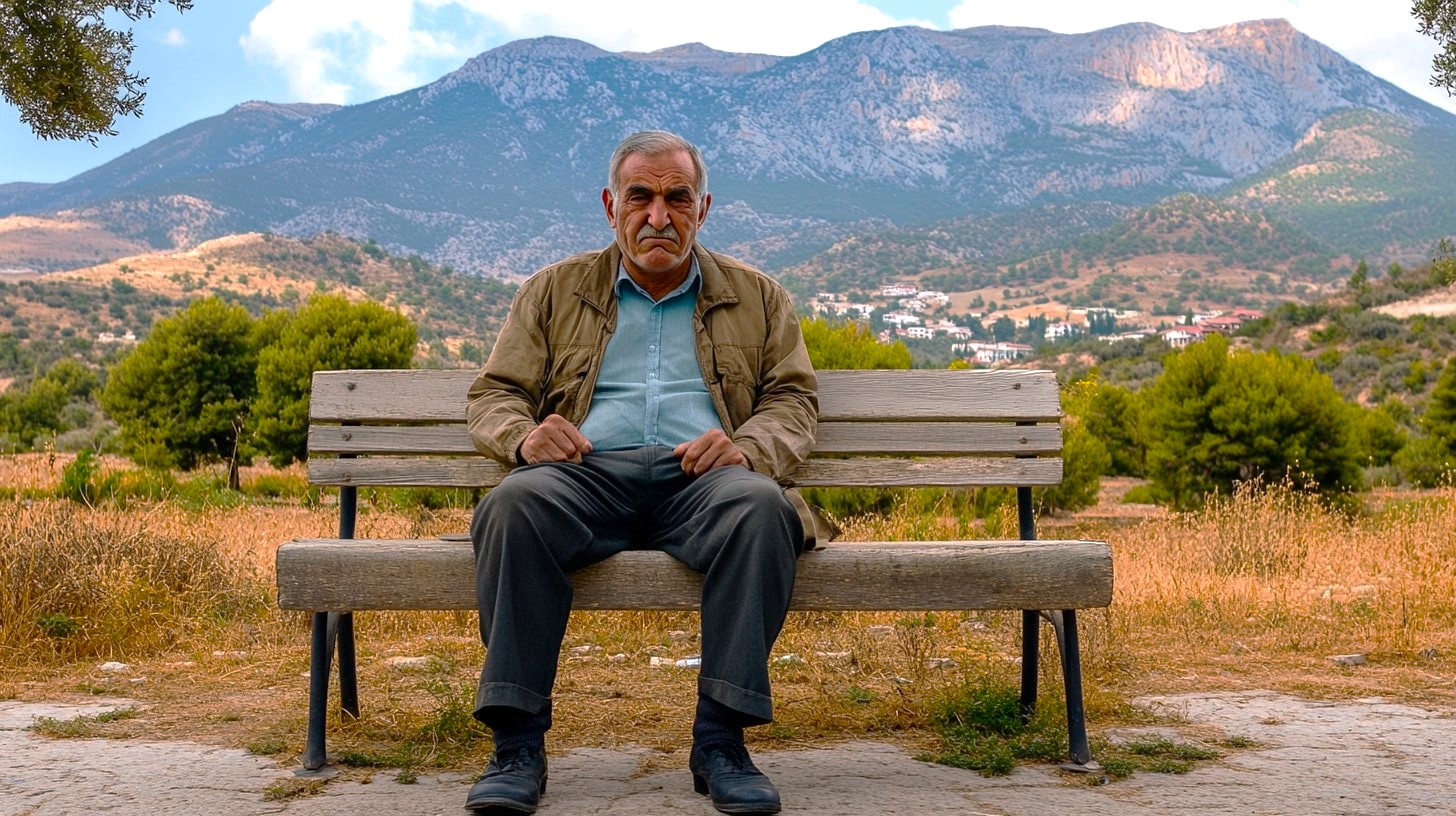Compared with many countries, our island is a fairly calm place! Until, that is, you look north...
Cyprus is about as angry as Britain. And France.
It’s less angry than Greece, Spain, and (understandably) the Ukraine. Unless, that is, you look at our nation as a whole – in which case, we’re a very, very irate island!
Let’s explain. In Gallup’s most recent World Happiness Report, we get all sorts of stats on everything from regional joy to the relationship between GDP and wellbeing.
But there’s also a more specific Global Emotions Report, which focuses on daily emotional experiences. Rather than measuring overall life satisfaction, it reveals how frequently people feel positive or negative emotions. And when you look at anger, things get really interesting. Especially for Cyprus!
Not for the Republic – we’re a pretty positive nation; just 17 per cent of us reported experiencing anger within the past 24 hours. But there’s a huge amount of detail on what the Report terms ‘northern Cyprus’!
According to the data, almost half of those in the north had experienced anger during the previous day – 49 per cent to be exact. That’s the highest anger level in the entire world!
Yes, above the Green Line, the population is more infuriated than anywhere else – including Iraq (where 47 per cent of the population experienced considerable amounts of anger the previous day), and Armenia (in which 43 per cent were irate).
It also ranked incredibly low on positive experiences.
‘The territory’s score of 46 is its lowest on record,’the Report reveals,‘sinking as the percentages of residents who smiled or laughed a lot (38%), experienced enjoyment (39%), felt well-rested (50%) or learned something interesting (19%) dropped to record lows.’
So, not only is the north the world’s angriest region, it’s also experiencing huge amounts of emotional negativity. Why?
“In terms of anger, I do think we run hot as a people,” says 30-year-old Kyrenian programmer Adnan Deveci. “Anyone who’s ever met a Turkish Cypriot will be aware that tempers can flare quickly.
“It’s a cultural thing, perhaps. We lash out easily – both women and men. We’re not a patient or relaxed people; we’re not Swedes or Danes. Something goes wrong, someone bangs their fist on the table, and the fight begins… You see it every night outside bars and clubs.”
Selin Arslan, a 42-year-old civil engineer in Nicosia, agrees. Though she notes that the general negativity may well stem from environmental and societal pressures.
“Turkish Cypriots and Greek Cypriots share a lot of genetic heritage,” she suggests. “But our social structures, traditions, and opportunities are very different. Nothing really works here,” she says. “You queue for hours at government offices but never get what you need. Or you want to buy something, but your wages are worth next to nothing. You pay rent in sterling, which is considered a stable currency – but you earn in Turkish lira, which is not.
“I’m aware the Republic shares some of these frustrations,” she acknowledges. “But I have many friends south of the Green Line. You’d be surprised how much better things work there than they do in the north!”
Politics, says 38-year-old Famagusta teacher Mehmet Ertan, may also play a big part in the emotional climate.

“Things have been politically stagnant for far too long. There’s pent up frustration in the north – I think a lot of Turkish Cypriots feel they don’t have a worthwhile future or any reason to be optimistic if they remain here. The unresolved situation creates a sense of limbo, and that uncertainty fuels anger.”
Costa Constanti, a political and social analyst who’s worked closely with policymakers on both sides of the island, suggest what may be driving emotion north of the divide.
“If you live in a pariah state, there’ll always be a shadow behind you,” he reveals. “You’ll never drop your guard as a community; you’re constantly looking over your shoulder. And that creates a great deal of personal tension.”
Costa references the Armenians, whose existence has been shaped by a history of displacement and uncertainty. He mentions Iraq, where multiple layers of control and instability fuel a climate of fear and unease. His point is clear: such conditions create anger.
“For many Turkish Cypriots, tomorrow is uncertain thanks to property disputes, precarious legal status, economic instability, and daily frustrations like traffic gridlock and a lack of public transport,” Costa explains. “And then there’s corruption…”
In a recent report on perception of corruption in the north, 99 per cent of the business participants believed that bribery and corruption exist in the occupied areas. Four in 10 admitted that they (or someone in their circle) had been forced to bribe an official within the last year simply to speed things along.
Meanwhile, 80 per cent of respondents stated that the ‘government’ was ‘not successful at all’ in fighting corruption, and 75 per cent reported that vote-buying and offering special favours in election periods was common.
“From kids’ schooling to building permits, business contracts, and tendering for government projects, there’s a constant sense that every aspect of life is coloured by injustice. Or inequity. Wouldn’t you feel angry – and extremely stressed – under those conditions?” Costa asks.
He raises a good point. It’s not just anger: further Gallup data reveals that north Cyprus also has the highest levels of stress in the world, with 65 per cent of respondents admitting they’d felt stressed within the previous day.
While stress has decreased globally over the past year, it still remains higher than it was a decade ago – except in a few, select regions of the world. Nowhere, the Report suggests, entirely escapes negative emotions. And though north Cyprus has everywhere beat in terms of both anger and stress, everyone feels these emotions at least some of the time…
Unless, that is, you live in Vietnam (where anger is a mere 5 per cent) and work in Kyrgyzstan (where stress is the lowest at 8 per cent). The commute, of course, would be hell. But if you really wanted to avoid negative emotions, it might just be worth it!
* Some names have been changed






Click here to change your cookie preferences